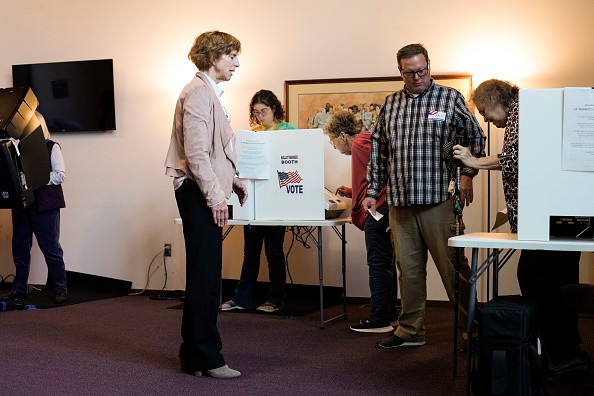Ohio voters showed their support for the legalization of abortion protection preliminary exit poll on Tuesday's election day.
In last year's US Supreme Court ruling, around 60-35% of voters were dissatisfied as the legislation eliminated the constitutional right to abortion.
Ohio Voters Support Abortion Access

According to the preliminary exit poll, around 61-36% of more than 380,000 Ohio voters supported the legalization of abortion rather than illegal in all or most cases. Forty-nine percent picked the Democratic Party and 42% the Republican Party in the early exit poll as the voter's trusted political party to handle the economy.
The Ohio abortion referendum, known as state Issue 1, would add a right to the state constitution for reproductive medical treatment. Furthermore, the law has the power to block bans on abortion.
On Tuesday's preliminary exit poll results, Ohio liberals account for 35% of voters. The votes increased from 20% in the 2022 midterms and 21% in the 2020 presidential election. If the votes remained at 35%, the votes would be recorded as the highest turnout among liberals in Ohio exit polls dating back to 1984.
However, the turnout among Republicans on the 35% of Tuesday's voters has decreased to 6% compared with the 2022 midterms, which was the lowest since 2012. Turnout among other interest groups, such as women, young adults, evangelical white Christians, and racial and ethnic minorities, was roughly the same as the past results.
In the 2022 exit poll in Ohio, the results were nearly as high as 58%, which indicates that support for legal abortion in the state was no surprise.
Impact of Abortion Restrictions on Women
New abortion restrictions were imposed in some states, which caused widespread public concern, particularly among women. Pregnant women were placed more at risk and maternity care centers were shutting down in states due to the new restrictions. Furthermore, another nationwide concern was the doctors that might leave the states with more restrictive laws.
In the overturning of Roe v. Wade by the Supreme Court to establish the right to an abortion, more women thought access to reproductive care was getting more complicated. The ruling has resulted in limiting or banning access to the procedure in half of the states immediately.
According to CBS News, more than half of pregnant women in the US were becoming unsafe from a health-care perspective. Voters in Michigan, Vermont, and California also voted to add abortion protections to their state constitutions. While Kansas, Kentucky, and Montana voters rejected efforts to access abortion.
Abortion advocates were starting to work to get initiatives on the 2024 ballot in states including Arizona, Colorado, Nevada, Florida, South Dakota, and Nebraska.








